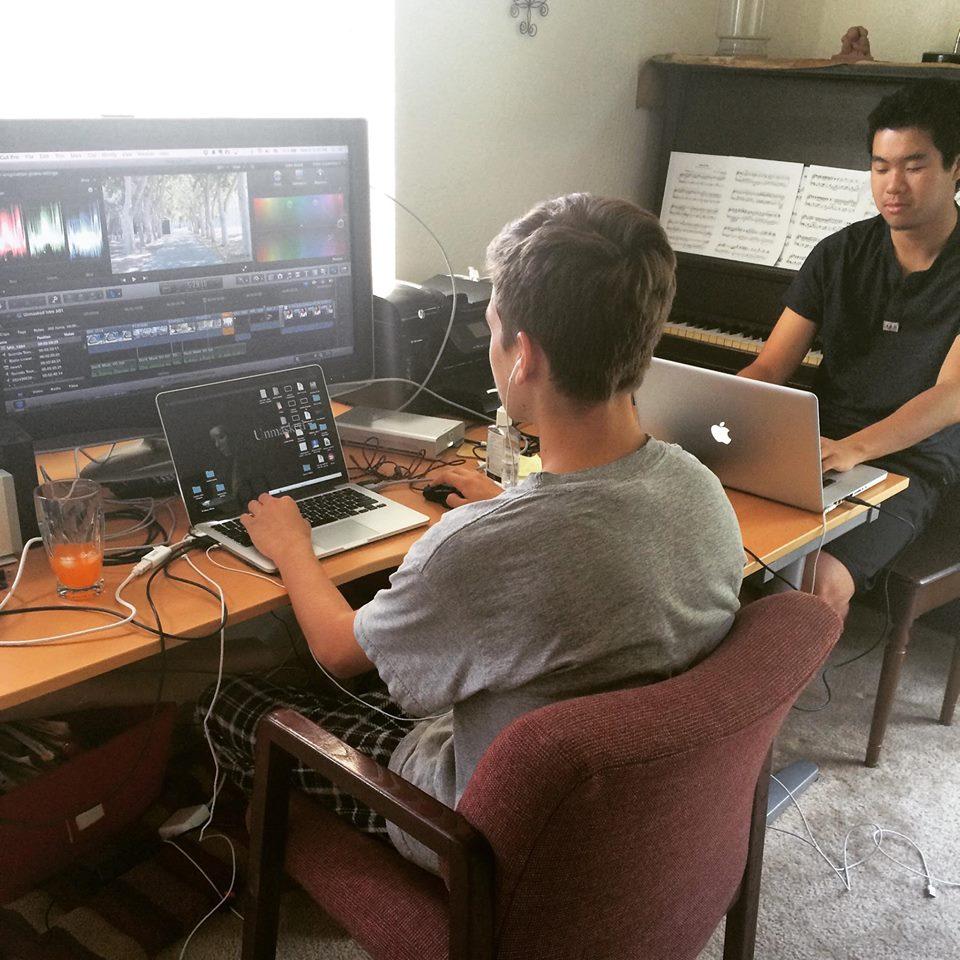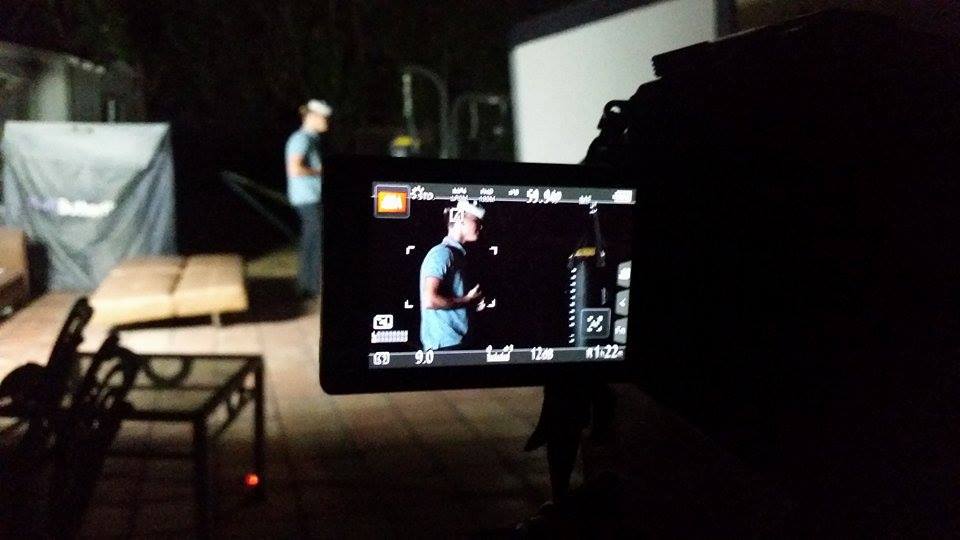On the first few days of school, at one point or another, every student is asked the inevitable question: What did you do this summer?
Some students traveled around the world, exploring far away wonders with family. Others participated in specialized programs at universities, enriching themselves in debate, theatre, business or music.
For 13 Palo Alto High School and Gunn High School students, however, the summer was filled with interviews, hard-hitting questionnaires and mental health awareness within their local community.
After a series of teen suicides last year, Paly seniors Christian Leong and Andrew Baer embarked on a five-month journey to capture the effect of mental health issues on their community.
In late May, they gathered a team of 13 students, naming themselves “Documenting our Community about X topics” or the “DocX” team. June marked the creation of their storyboard while July turned their vision into reality — filming. Five months later, after the release of a trailer (see here); the team is ready to premiere the entirety of their film at 6:30 p.m. Sept. 12 at the Palo Alto Children’s Theater.
According to Baer, the documentary is a direct response to the teen suicides in Palo Alto, serving as a way to spark conversation between youth and adults, break the stigma around mental health and inspire hope throughout the community.
“We want as many people in the community to see the film because it’s really a community issue,” Baer said. “It’s not just school or students or teens.”

“It gives a backstory of what happened last year,” Leong said. “It then moves on to what we can do moving forward about the issue while also giving a fictional storyline.”
The narrative aspect of the documentary tells the story of a fabricated high school student, “Winston,” played by Paly senior Daniel Cottrell. According to Baer, the character’s setting and personal life remain vague in order to illustrate a relatable character experiencing something difficult.
“His [Winston’s] purpose is to provide the emotional aspect of the film that you can’t really get through the documentary,” Baer said.
The nonfictional component of the film contains interviews with students, teachers and mental health professionals. Seniors Carolyn Walworth, Bryn Carlson and Leslie Garcia share their stories in each respective interview. Paly math teacher Herb Bocksnick and English teacher Shirley Tokheim voice their opinions as well.
Other interviews include Supt. Max McGee; Chris Sturgeon, a youth pastor at Menlo Park Presbyterian Church; Dr. Shashank Joshi, a Stanford medical psychologist; and Vassi Johri, Director of health and wellness at REACH Ashland Youth Center in San Leandro, which offers support services for teenagers.
For the team, the interviews not only provided strong components to the documentary but also added to the filmmakers’ understanding of the topic as a whole.
“The whole interview process was also a learning process,” Baer said.
According to Leong, the most difficult aspect of the interviews was dealing with the sensitivity of the topic.
“You really have to be careful in the wording when you reach out to different interviewees and as a team,” Leong said.
To ensure consideration, the filmmakers carefully followed the standardized requirements for filmmaking provided by the American Foundation for Suicide Prevention, specifically in regards to word choice and glorification, according to Leong.
The documentary also cites information, ranging from teenage involvement in community issues to sources of stress, that was gathered from local high school students through online surveys composed by the filmmakers. Open-ended questions included:
- Which of the following causes you stress?
- What is your definition of hope?
- What do you suggest the district do to support teen voice?
- Is teen voice being heard in the community?
“We really valued the data because we thought it could give a good sample size of what people in our class really thought of the issue,” Leong said.
Prior to the creation of “Unmasked,” directors Leong and Baer had separate experiences with filmmaking. Leong took video production courses at Paly and attended a two-week course at Occidental College for its School of Creative and Performing Arts. Baer, on the other hand, gained his film expertise through his father, who is involved with the filmmaking industry.
“Just making movies for fun has been something I’ve done,” Baer said.

After working for hours together each day over the summer, the team of 13 students — Paly seniors Baer, Leong, Josh Yuen, Joseph Kao, Daniel Cottrell, Leslie Garcia, Natalie Snyder and Stas Ilyasov; Paly junior Zack Gibson; and Gunn seniors Yui Sasajima, Lydia Sun, Tanner Kerrins and Rachel Rothberg — bonded through their work.
“We found people who would be interested in both the film and the issue,” Leong said. “Because everyone was super passionate about it, the working environment was really great to be in.”
Leong is thrilled to showcase the culmination of five months of work.
“[The filmmakers] really poured their heart and soul into it, and I’m just so proud so many people were able to see this project from the start to finish,” Leong said.
Videographer Gibson is passionate about the film’s overall message and hopes it rests well with the audience.
“We aren’t pointing fingers at any particular problem or community member,” Gibson said. “This is about coming together as a community and not blaming one person, place or thing.”
Baer, as well, looks forward to see the impact the documentary has on the community.
“The best thing we can do is just help people find an opinion, inspire people to make a positive difference, or think about it more and encourage conversation,” Baer said.
“Unmasked” is set to premiere from 6:30 p.m. to 8 p.m. Sept. 12 at the Palo Alto Children’s Theater. The venue is limited to 196 tickets, which can be reserved here for free.

